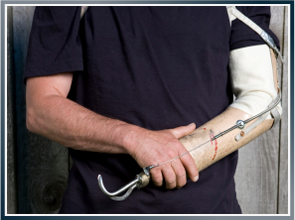What to Expect After a Maritime Injury
 If you’re in a car accident, you know what to do. You call the police and file an insurance claim. However, when you experience a traumatizing maritime injury while working at sea, things work a lot differently. In all of the confusion, it can be easy to say or do the wrong thing that could make filing an injury claim more difficult.
If you’re in a car accident, you know what to do. You call the police and file an insurance claim. However, when you experience a traumatizing maritime injury while working at sea, things work a lot differently. In all of the confusion, it can be easy to say or do the wrong thing that could make filing an injury claim more difficult.
Whether you work on a fishing boat, a tugboat, a container ship, oil tanker or even on shore, you are entitled to compensation under maritime law. However, what you do immediately following your maritime injury is critical and determines what you can receive to help with medical expenses and lost wages. After an injury at sea, it is important to do the following:
- Contact the authorities immediately. If you are out on U.S. navigable waters, you must report the injury to the closest U.S. Coast Guard (USCG). If that is not possible, report to the Marine Inspection Office or a Coast Guard office. It is important that you remember to follow up your report in writing in five days, using the USCG CG-2692 form afterwards.
- Treat your injuries. Seek medical care immediately and make sure they do a full medical evaluation, as there are many serious injuries that show latent symptoms. Make sure you keep copies of all your medical records.
- Allow drug testing. Workers on commercial vessels are required to submit to a drug and alcohol test following any accident. If you don’t, this will make filing a claim extremely difficult down the road.
- Gather witness information. If it is possible, obtain the contact information of anyone who was involved or saw your maritime accident.
- Document and preserve the scene. Don’t disturb the accident scene, if at all possible, so that the authorities can investigate the cause of the accident. It may be chaotic and you may be in a lot of pain, but take pictures of the accident and any other vessels involved if possible.
- Report your injury to the captain. As soon as you can, submit a written report to the captain of your vessel and make a copy of it for your personal records. Try to include as many details as possible.
- Do not speak to insurance agents about the accident. Don’t agree to speak to anyone from your employer’s insurance company and do not sign any documents without a maritime attorney present. Insurance agents will try to take a statement from you as soon as they receive word of your accident. In the chaos of everything, you may say something that they can twist and make it difficult or even impossible for you to receive any form of compensation for your injuries, even if it wasn’t your fault.
- Consult with a maritime attorney. An attorney who is familiar with the Jones Act and other maritime laws will ensure your rights are protected, which includes handling communications with your employer’s insurance company. They will conduct their own investigation so that the facts are straight and will work to make sure you have the compensation you are entitled to while you recover.
David Anderson is an experienced maritime attorney with Latti Associates LLC who fights for workers injured at sea.